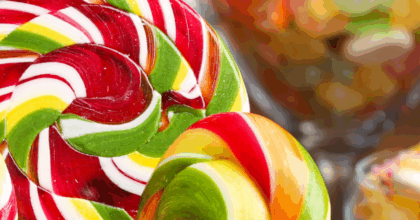Baking provides bright spot in Canada’s sugar market
With popular cooking shows on the rise and food posts on social media feeding the desire for showing off delicious baked creations, new research from Mintel reveals that 43 percent of Canadians who use sugar/sugar substitutes say that whether or not a sugar/sugar substitute is good for baking is an important purchase factor, with women most likely to agree (50 percent). Women also are using a larger range of products as over four in five (84 percent) use two or more types of sugar/alternative sweeteners compared to just 79 percent of men.
While taste is by far the most important point of consideration when buying sugar or sugar substitutes (71 percent), an emphasis on naturalness is clear as well over half (58 percent) of Canadian consumers say whether a product is natural or not is an important factor. What’s more, nearly two in five (38 percent) say that they consider perceived health benefits when purchasing sugar and sugar substitutes, while one third (33 percent) typically check food/drink labels for the type of sugar/sweetener used.
“Consumer enthusiasm for baking has been on the rise in recent years, fuelled by engagement across social media and popular television shows. The endless supply of recipes often includes alternatives to white sugar, providing a bright spot for the industry by not only encouraging usage, but also providing a platform that exposes consumers to the range of different sugars/alternative sweeteners on the market,” said Carol Wong-Li, Senior Lifestyle & Leisure Analyst at Mintel. “As concerns around white sugar drive interest in baking with different types of sweeteners, marketers may find that efforts to show consumers how to replace white sugar with less processed options in baking recipes will resonate, particularly with women.”
Usage levels of white sugar (54%) and honey (53%)
are on par among Canadians.
The preference for more natural or less processed alternatives is driving some consumers toward the use of honey, as Mintel research reveals that usage levels of white sugar (54 percent) and honey (53 percent) are on par among Canadians. Younger women seem to be especially drawn to natural sugars as female consumers age 18-44 are just as likely to report using honey (59 percent) as they are white sugar (57 percent).
Indeed, one third (33 percent) of Canadians overall agree that products that are high in natural sugars, such as fruit, are healthy and 35 percent believe that added sugar is worse than naturally occurring sugar. However, there seems to be some confusion over what is considered healthy as more than half (53 percent) of Canadians who use sugar/sugar substitutes say it’s hard to tell which sugar substitutes are natural and which are not.
“As Canadians lean more toward natural and less processed options, usage of honey is a popular option for baking and cooking. However, as many consumers are confused about which products are natural, marketers would do well to consider helping consumers develop a better understanding of what the term ‘natural’ actually means and which products are natural,” continued Wong-Li.
It appears that not all publicity is good publicity as more than half (51 percent) of Canadian consumers noticed greater media coverage in 2016 about how sugar affects one’s health (compared to 2015). What’s more, the majority of consumers (69 percent) say they are concerned about the impact of sugar on their health and nearly two in five (39 percent) say they research information about sugar/sweeteners before using them.
Negative perceptions are likely affecting sales, with dollar sales of sugar* falling 15 percent from 2011-16, reaching an estimated $215 million. This sugar backlash may also be leading to increased interest in alternative sweeteners, as the category grew 10 percent from $66 million to an estimated $74 million from 2011-16.
“Negative media coverage, coupled with consumer perceptions of the potentially harmful effects of sugar and sweeteners on one’s overall health, is likely playing a role in declining sales. The Canadian mindset toward more natural food and drink ingredients is casting a shadow over the potential for growth in the sugar category, however, we expect to see increased interest in alternative sweeteners,” concluded Wong-Li.
*ie white and non-white beet and cane sugars, excluding molasses, syrups and honey
Press copies of Mintel’s Sweeteners and Attitudes Toward Sugar 2016 report and interviews with Carol Wong-Li, Senior Lifestyle & Leisure Analyst, are available on request from the press office.
For the latest in consumer and industry news, top trends and market perspectives, stay tuned to Mintel News featuring commentary from Mintel’s team of global category analysts.
-
Discover your next big breakthroughGet smart fast with our exclusive market research reports, delivering the latest data, innovation, trends and strategic recommendations....View Reports
-
2026 Global PredictionsOur Predictions go beyond traditional trend analysis. Download to get the predictive intelligence and strategic framework to shape the future of your industry in 2026 and beyond. ...Download now
-
Are you after more tailored solutions to help drive Consumer Demand, Market Expansion or Innovation Strategy?Ask for a customised strategic solution from Mintel Consulting today....Find out more































